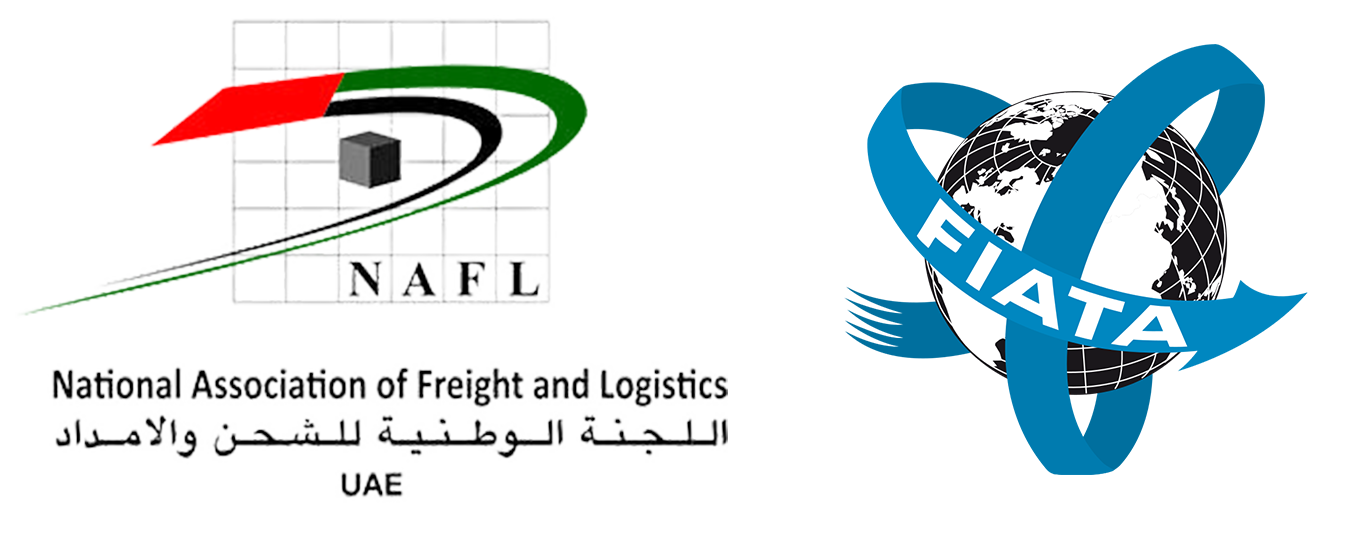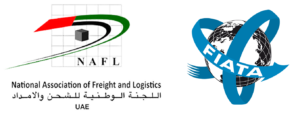NAFL President Nadia Abdul Aziz holds forth on a wide range of industry
subjects and their consequences in the shadow of the pandemic
There is no doubt that the Covid-19 pandemic has dealt a massive blow to the global economy. On the supply side, factories and businesses have been forced to close temporarily due to the shortage of input materials from suppliers and the need to protect workers. Demand is declining, too, as consumers stay home and face the prospect of a large-scale economic downturn.
As a natural and obvious corollary, the pandemic has irretrievably impacted both national and international trade and constituent production, supplies, transportation distribution systems with far-reaching economic consequences for the core logistics and supply chain industry.
Many logistics and supply chain companies and related services providers in the UAE have gone out of their usual to not only tackle the disruptions wrought by the pandemic and its fall out on virtually every industry sector across the globe. To get to know and understand the ramifications of the pandemic in the UAE and region, Global Supply Chain conducted an exclusive expansive interview with Nadia Abdul Aziz, the second-term President of the long-established UAE’s National Association of Freight and Logistics, NAFL, the first apex association of freight logistics service providers to be established in the Middle East. Nadia is also the first Emirati to hold this coveted position.
Global Supply Chain (GSC): Briefly, what are key takeaways of the Covid-19 pandemic from the logistics and supply
chain perspective? Nadia Abdul Aziz (NAA): There are clearly many far-reaching and across-the-board implications of the onset of Covid-19 pandemic for the national, regional and international logistics and supply chain industry.
We learned that we need to have the following in place to avoid major business disruptions—to have contingency plans for crisis situations and management of businesses during crises.
We need to train employees on extensive use of IT and new tried and tested technologies for our businesses and how to maximize productivity by the latest available hi-tech services and smart applications. We also realize capability, adaptation and resilience in employees who can run business successfully despite the odds Furthermore, we need to invest more in the software used in the offices as digitalization is the future and becoming increasingly indispensable.

The UAE Government is well prepared in his segment and the Government Strategy & Charter for 2021 was implemented earlier which has proven to be very effective and successful.
The private sector should engage and use the updated and the latest available technology in their work. Quotes, rates, online live client meetings, management reports, online marketing and sales are now the new norm. We need to harness technology to drive sales, generate more business, and reduce costs and most of all now is to connect to the e-commerce users and ensure you can fulfill their needs & requirements.
There has been a big uptake on this front and this will continue in the foreseeable future, which means logistic firms need to be ready to capture this growing market with opportunities. A good example is Noon Logistics which is now really focused on serving clients online by delivering daily groceries to top fashion and electronic items. Many e-commerce businesses have been prudent to realize the potential of online marketing and purchasing a sector that will continue to deliver greater dividends going forward.
GSC: How is the onset of the pandemic impacting the L&SC (logistics & supply chain) trade regionally and globally and the UAE specifically?
NAA: Logistics was badly impaired in some instances or considerably reduced in the immediate aftermath of the shutdown following the outbreak of the pandemic. There was an increase in medical supplies cargo, food supplies, urgent machinery parts and humanitarian aid along with other main necessities. Large volumes of emergency and medical goods are being airlifted to the much needed areas. Due to high demand and restricted flights, the result was higher air freight rates by 3 to 4 times than the regular air freight rates.
Fortunately in the UAE it was well organized compared to other countries and this was thanks to the Government’s
use of technology, smart services long ago which made it easier for forwarders to work remotely during shutdown and even after. During the shutdown forwarders were permitted to work as their industry is one of the vital industries in the country to ensure everything the hospitals, medical community and consumers need are
available.
All operations for imports and exports of necessary goods are done using a single window application such as ‘Dubai Trade’ for Dubai corporates and ‘Maqta Gateway’ for Abu Dhabi. This facilitated the streamlined movements of goods and reduced personal and unnecessary face-to-face interaction as operations are conducted online to complete cargo documentation and clearance.
GSC: How much of your professional work environment / ecosystem in the operations realm has changed as a result
of the Covid-19 virus onslaught?
NAA: I estimate at least 40 percent of our work can be done remotely, as most Government transactions can be done online and even over your mobile. Better coordination and communication skills were used during the pandemic to complete client work and I can say more team work and harmonization is called for as everyone wants to stay safe whilst at the same time secure their jobs even if it means doing the work remotely or in shifts.
We at NAFL have efficiently utilized our office space to ensure all employees can work in a safe environment as we ensured here is appropriate and mandatory social distancing. The same is also true of many of our associates and members. We are continually monitoring the market for quality protective materials that we can provide for our staff. We operate as a close knit team ensuring everyone knows their responsibilities to stay safe and to ensure
safety at all times. We are mindful that our member-companies are also following suit.
Utilizing temperature and heat sensitive cameras in the warehouses to monitor everyone with a fever can be effectively used to reduce risk of any infection or virus spread at the facilities and warehouses. That applies to all and many NAFL associate companies have invested in this arena to ensure safety of their employees and workforce.
https://globalsupplychainme.com/2020/08/navigating-nafl-through-turbulent-times/


